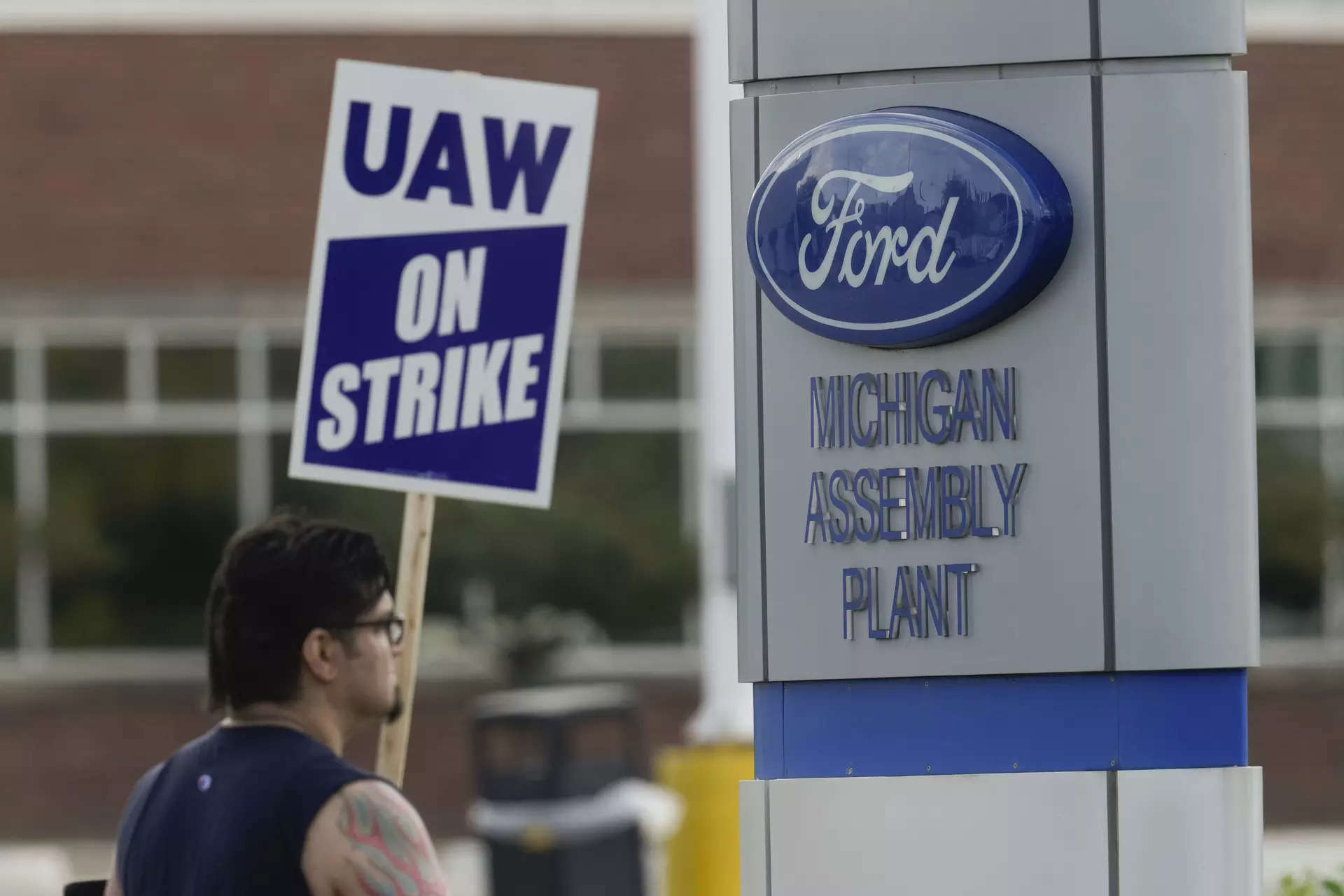
Ford Motor could face a strike in Canada if no agreement is reached by 11:59 p.m. Monday with the union representing about 5,600 Canadian auto workers, just days after workers at one of its U.S. plants went on strike.
On Friday, the United Auto Workers union launched a targeted strike against Ford, General Motors and Chrysler-parent Stellantis, targeting one assembly plant at each company.
Canadian union Unifor, whose contract with Ford expires at 11:59 p.m. Monday, said “while we remain at the table the likelihood of a strike increases with each passing hour.”
Ford has two engine plants in Canada that build V-8 motors for F-series and Super Duty pickups assembled in the United States. It also has an assembly plant in Ontario.
A walkout by Canadian workers that shut down those engine plants could cripple U.S. production of Ford’s most profitable vehicles, even if the UAW decides not to order walkouts at truck plants in Kentucky; Dearborn, Michigan; and Kansas City, Missouri.
Talks between the UAW and the Detroit automakers continued on Monday as a strike by auto workers over pay dragged on for a fourth day with little sign of progress toward a deal. Some 12,700 workers are striking at the three U.S. plants.
Union negotiators and representatives of GM, Ford and Stellantis held talks over the weekend in an attempt to end one of the most ambitious U.S. industrial labor actions in decades. On Monday, the UAW held talks with Stellantis though no deal was reached. It had scheduled a new round of talks with Ford for late afternoon.
Stellantis is considering options for its sprawling headquarters complex in Auburn Hills, Michigan, north of Detroit, a spokeswoman said on Monday. The company does not need the space in the complex, once the headquarters and technical center for the former Chrysler Corp., now that many employees are working remotely all or part of the time.
UAW President Shawn Fain told NPR Monday there were “minimal conversations over the weekend so the ball is in their court …. We have a long way to go.”
He said the UAW is ready to do what was necessary when asked whether it would extend the strike to other plants this week.
In a separate MSNBC interview, Fain said talks were moving slowly: “We’ll see how things progress the next few days and if we have to amp up pressure that is what we’re going to do.”
Treasury Secretary Janet Yellen said it was premature to forecast the strike’s impact on the economy, which would depend on how long the action lasted and what was affected.
The strikes have halted production at plants in Michigan, Ohio and Missouri that produce the Ford Bronco, Jeep Wrangler and Chevrolet Colorado, alongside other popular models.
Ford on Friday furloughed 600 workers who are not on strike at the Michigan Bronco plant because of the impact of the work stoppage. GM says it expects to halt operations at its Kansas car plant early this week because of the strike at its nearby Missouri plant, affecting 2,000 workers.
Analysts expect plants that build more profitable pickup trucks like Ford’s F-150, GM’s Chevy Silverado and Stellantis’s Ram to be the next strike targets if the walkout continues. Shares of BlueScope Steel slipped to an over three-month low as the strike weighs on its North American business. The Australian steelmaker generated nearly 42% of its fiscal 2023 sales revenue from North America.
The unions and companies are at loggerheads over pay and benefits for workers. The three automakers have proposed 20% raises over the 4-1/2-year term of their proposed deals, though that is only half of what the UAW is demanding through 2027. The UAW at one point during the talks offered to lower its demand to 36%.
Besides higher wages, the UAW is also demanding shorter work weeks, restoration of defined benefit pensions and stronger job security as automakers make the shift to electric vehicles.

